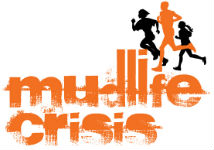
This is a topic that has been on my mind a lot, for basically the past 11 years. I get a lot of people who put down some of the “back to nature” calls that have been put out to the world of late (and even not so recently, actually). For example, “I want to live in the 21st century” is a comment I got when I shared an article about something as simple as squatting. And there seems to be a mindset that living in a world of science means always doing the latest and greatest new thing that comes along. But that’s not always the case.
2008 was when I first started on the Paleo Diet. As most of you probably know, the initial lesson of the Paleo Diet was to shun grains, legumes, and dairy. That was pretty much it. Fat was not the enemy, but all these carbs were. Gluten is the devil, seed oils were inflammatory, and never eat anything that came in a box.
Paleo diet led into more natural forms of exercise. MovNat, the Ido Portal Movement Culture, Evolve Move Play, Animal Flow, and even Crossfit to a certain extent all promoted moving like humans did thousands of years ago. And people got out into the sun more, getting natural vitamin D. We’ve gotten more in tune with things like grounding, and circadian rhythm for sleep, trying to emulate a more natural environment for ourselves and our health.
And of course, the outcry against Paleo and these more natural ideas has been widespread. “But we’ve been eating this way for decades and it’s not hurting us!” “People are fat because they don’t exercise enough, not because of what they’re eating!” “Calories in, calories out!”
But time has gone by, and via science we’ve discovered that our existences are much more tied to nature and evolutionary biology than we ever thought. We’ve started to recognize that there’s something to all this return to nature stuff.
Yet there are still people out there who decry “I would rather live in a world of science than all this natural living.” The implication there is that science is only about new discoveries – new drugs, new technology, “better living through chemistry,” etc.
Let’s take a look at what science actually is. A Facebook post by the John Glenn Astronomy Park near Columbus about the recent image of a black hole generated by a young grad student at MIT recently brought this into clear focus (pun unintended) recently. Here’s the beginning of the post:
A lot of people have a misconception about science. They imagine scientists coming up with all sorts of ideas, and then looking for evidence to prove those ideas.
It’s just the opposite.
People who do science teach us about the universe by building up ideas, and doing everything their power to break those ideas by testing them against reality. If they break, then, well… back to the drawing board. However, if they hold up under repeated tests and scrutiny, then we have pretty good idea that we’re onto something.
Yes, science is about trying new things to a great extent.
But another big part of science is discarding the new things that don’t work out.
That’s a hard thing for many outside the scientific community to accept. Heck, it’s tough for many of the people in the scientific community to accept. No one likes to be proven wrong.
But science is about finding the truth.
It’s not about the newest technology. It’s not about using science to justify what we have. Science is about being honest regarding what works and what doesn’t.
Science is, ideally, honest. We just had a post about being honest last week.
Here’s the thing: science continues to show that humans are healthiest when they live as close to the natural world of pre-agricultural times as possible. It keeps proving that modern conveniences are slowly weakening us.
Someone I am very close to once looked at my lifestyle of trying to live closer to a natural world and sort of dismissed it with the comment “I’ve always felt that science is a good thing,” as if my practices were inconsistent with science. And that bugged me.
Because Science doesn’t always mean new technology.
It certainly can mean new technology, don’t get me wrong. Medicine has saved a lot of lives by fighting off infectious disease. Computers and computer networks have helped us make great advances across the board.
But it’s also given us things like high-fructose corn syrup, glyphosate, nuclear waste, red dye #5, an obesity crisis, and more. It’s not always a good thing.
We need to be able to see the instances when technology and new ideas aren’t working. We need to be able to look at something like a pair of high-heel shoes and say “this is making my back and knees bad.” We need to be able to look at a bag of Doritos and say “this tastes amazing but is filling me with nutritionally void carbs.” We need to be able to look at glyphosate and RoundUp and say “this could cause me to get cancer” and stop using it.
Science isn’t good or bad. It’s an ongoing process. And we need to understand that sometimes the newest discoveries of science and technology aren’t benefiting us, and to discard them and return to what actually has worked for generations of human existence.






